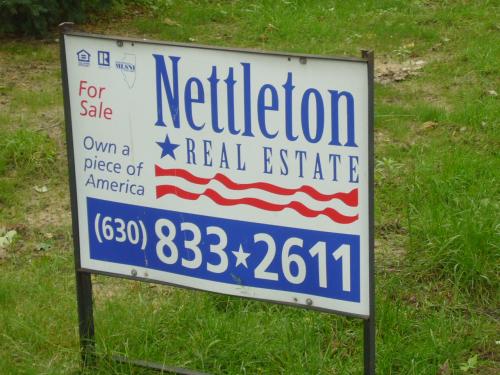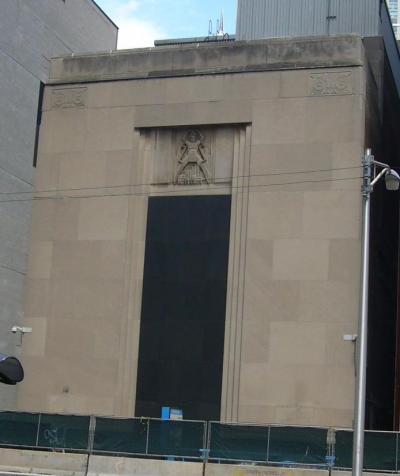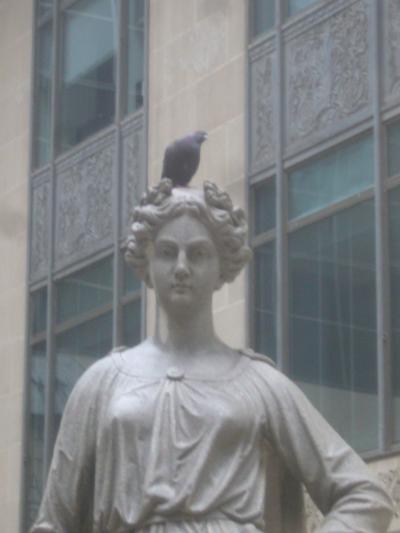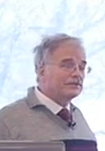
Successful land speculation (also known as “real estate investment”) is really a matter of taking for yourself the gains that belong to the community. George Menninger is one of the many who have done it, but he’s exceptional in his understanding of what he did, as well as his sympathy for his victims. He’ll explain how the bad public policy he exploited not only made him rich, but led to continued poverty, unemployment, and even the recent economic meltdown.
Menninger is a Henry George School volunteer instructor, and this stand-alone session also serves as the introduction to his modern version of Progress & Poverty. After his talk, you may, if you wish, sign up for the five-session course.
Since earliest civilizations, humans have recognized that food is a product of farmland (and, yes, pastureland, fisheries, etc) and have managed to cultivate enough land to feed themselves. Yet today we routinely convert farmland to urban use. American Farmland Trust (AFT) seek to ensure continued agricultural use of some land by buying development rights from farmers, and try to make farms more viable by facilitating community supported agriculture. The geoist fiscal reform provides an alternative way to encourage more conservative and productive use of all land. With additional material from YES! magazine about the slow food revolution, this presentation by HGS instructor Bob Jene suggests that an alliance between AFT and geoists might benefit both.

Originating as a field trip for students completing our Progress & Poverty course, this stroll thru downtown Chicago examines some of the ways that average people, and the community as a whole, are deprived of their just earnings. Among other things we’ll see who benefits from the expensive infrastructure and “economic development” projects, how Thomas Jefferson wanted Chicago to fund its public schools, what happens when a well-located building burns down, and how land speculators get productive workers to pay their taxes. Expect to walk about 2 km, maybe we’ll stop for snacks (individual settlement) along the way.
A $10 donation is requested from those who are not recent or current HGS students or donors, but nobody will be excluded due to lack of funds. You can make your donation by credit card here, or bring cash or a check.

Originating as a field trip for students completing our Progress & Poverty course, this stroll thru downtown Chicago examines some of the ways that average people, and the community as a whole, are deprived of their just earnings. Among other things we’ll see who benefits from the expensive infrastructure and “economic development” projects, how Thomas Jefferson wanted Chicago to fund its public schools, what happens when a well-located building burns down, and how land speculators get their taxes paid by productive workers. Hardcopy sourced notes will be provided. Expect to walk about 2 km; maybe we’ll stop for snacks (individual settlement) along the way.
A $10 donation is requested from those who are not recent or current HGS students or donors, but nobody will be excluded due to lack of funds. If you have a paypal account, you can make your donation by credit card using the link below, or better yet bring cash or a check.

As farmland yields to “higher-value” uses, how (and how well and how inexpensively) will we eat? Bob Jene reviews data from a leading agricultural preservation organization, the American Farmland Trust (AFT). Among other things they buy development rights from landowners to insure continued farming use, and attempt to facilitate community supported agriculture which makes family farms more viable. A Georgist fiscal reform encourages more conservative and productive use of all land and reduces sprawl, thus preventing encroachment on farmland. An alliance with AFT would benefit us both.

Urban sprawl is threatening to destroy much valuable farmland. We will look at data from one of the leading national organizations trying to mitigate this damage, The American Farmland Trust (AFT). Among other things they buy development rights from farmers to insure the land’s continued use in agriculture and attempt to facilitate community supported agriculture which makes family farms more viable. The Georgist fiscal reform reduces sprawl alleviating pressure on farmland.
(image credit: Kristian Bjornard ; Attribution-ShareAlike 2.0 Generic (CC BY-SA 2.0); https://flic.kr/p/8RYWFy)
“The purpose of Newspeak was not only to provide a medium of expression for the world-view and mental habits proper to the devotees of IngSoc, but to make all other modes of thought impossible. It was intended that when Newspeak had been adopted once and for all and Oldspeak forgotten, a heretical thought – that is, a thought diverging from the principles of IngSoc – should be literally unthinkable, at least so far as thought is dependent on words.“
— George Orwell

Something like this has happened to the field of economics, says Dan Sullivan. Terms which had clear meanings to Adam Smith, J S Mill, and other classical economists have got distorted and redefined– or obliterated– to prevent serious discussion of economic issues. Going back to the roots of political economy, Dan suggests the real point of a proper science of economics would be to efficiently satisfy the desires of the people, both individually and collectively.
Dan will help us distinguish between “rights” and “privileges,” “investments” and “acquisitions”, and several distinct concepts that all get called “wealth.” He’ll address the difference between “means of production” and “capital,” and differentiate “human capital” from modern slavery.
You can understand today’s economic issues such as minimum wages, tax policy, international trade, housing costs, and unemployment, but only if you have a clear idea of the fundamental terms. These terms can be readily comprehended by ordinary people and do not lead to any particular “left” or “right” public policy, but they facilitate informed communication.
There will of course be time for questions and discussion.
Based in Pittsburgh, Dan Sullivan is a popular speaker on economic issues, and Director of Saving Communities
